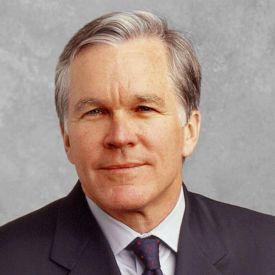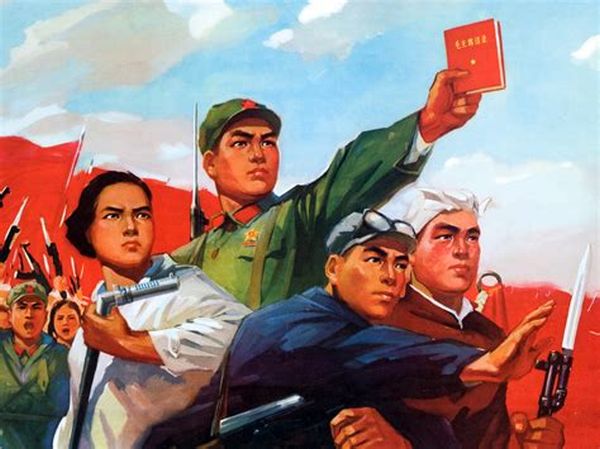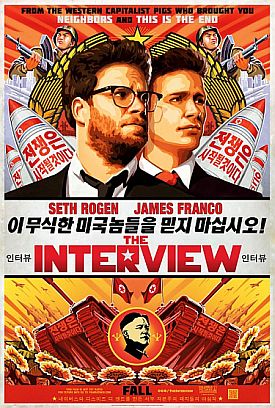A Partisan Memorial
From The New CriterionCasting my eye over the Washington Post’s obituary page the other day, I came across this rather striking opening paragraph:
William Ringle, a chief Washington correspondent for Gannett News Service who nimbly covered foreign policy and national affairs and who was known for taking a dim view of opinion writing, died Sept. 5 at a retirement home in Davidson, N.C. He was 88.
Odd, that. Imagine being a journalist of some distinction and having it put in the lead graf of your obituary that what you were “known for” — what, in a sense, your life amounted to and thus why you are afforded an obituary in one of the nation’s leading newspapers — was (a) your (presumably) figurative nimbleness and (b) your dim view of opinion writing. We can guess what the author, Adam Bernstein, was getting at. It was another if not very elegant way of saying that Mr Ringle had outlived the journalistic conventions and customs under which he had distinguished himself in that trade. He was, in short, a dinosaur — which is journalese for an extinct species. That, in turn, is journalistic hyperbole for someone whom time and fashion have in some degree stranded in the past. Such people appear, like dinosaurs to the age of mammals, either frightening, bizarre or quaint, and there is a little of each, I fancy, in the dim view taken by today’s journalists of someone from a preceding generation who once took a dim view of opinion writing. How could it be otherwise when all journalism has become, if not itself opinion writing, focused and directed by opinion?
Maybe it was always that way. After his dim view of opinion-writing, the obituary tells us, Mr Ringle’s lesser-known accomplishments included “a reputation for pivoting deftly from coverage of major world events to stories that were of a decidedly local angle for the smallest of Gannett’s papers.”
When he retired in 1988, Mr. Ringle was saluted by the company’s news chief, John Quinn: “Only Bill Ringle, on a visit to Lebanon in 1970, would have filed stories about an acting ambassador from Rochester, a drug suspect from Niagara Falls and an American drug agent from Hartford. And only Bill, dispatched to cover the Reagan-Gorbachev summit in Moscow for the nation’s largest newspaper group, would offer to write two stories about a touring local volleyball team for one of the group’s smallest papers, in Sturgis, Mich.”
That’s not opinion as we think of it today, of course, but looking at world events from the point of view of the parochial has obvious similarities to the techniques of political reporters who are increasingly eager surreptitiously to express a private opinion of a public event by purporting to explain its meaning.
Therefore, perhaps, Jill Abramson told The New York Times’s “public editor” Arthur Brisbane in an interview published on September 11th to mark her accession earlier the same week to the post of executive editor (“the first woman to serve as top editor since the paper’s founding in 1851,” in case you didn’t know) that “the thing I like most, I love the story behind the story. And I love an analytical scoop.” It’s not quite clear whether an “analytical scoop,” an expression I had not heard before, is meant to be the same as “the story behind the story” or if it is just another thing she thought of that she loved after telling Mr Brisbane the thing she loved most. Either way it does neatly sum up the attitude of the Times and other major news outlets to the news these days. They no longer want to be the first with the news by getting the “scoop” of journalistic legend. That opportunity hardly exists for them any more on account of the vigilance and dispatch of the Argus-eyed Internet. Instead, they aspire to be the first with what to think about the news — a responsibility they have come to take every bit as seriously as they used to take their duty to report the news accurately and completely.
Unlike regular scoops, analytical scoops are not perishable either, which allows for a much bigger “news hole” — or at least a much more congenial one for today’s non-Ringlesque journalists. That’s why so much of the same day’s Times, like newspapers and news outlets of other sorts across the land, was filled with the latest analytical scoops about something that happened ten years previously. The Washington Post noticed the contrast between the journalistic attention to the anniversary of the 9/11 terror attacks and that which was given to such previous moments of national trauma as the Civil War and the Japanese attack on Pearl Harbor.
On TV and radio, in print and online, over social media that didn’t exist 10 years earlier, the tributes, reflections and search for meaning have poured forth in a kind of collective media-fed group therapy. Where were you that day, many news organizations asked? What do you remember? On Sunday, it was impossible to forget. Eight networks carried live coverage of the official memorial ceremonies at the Pentagon, Ground Zero and Shanksville, Pa. The NFL waved field-size American flags during its marquee matchups, including the symbolic New York- Washington game between the Giants and Redskins. Every outlet had an angle; a Web site called Food Republic surveyed chefs about their memories (“I would never forget the feeling of me cooking that night,” one said). “I think this is what 24-hour news cycles result in,” said Gene Roberts, a former editor of the Philadelphia Inquirer and New York Times. “If you have a lot of time to fill, anniversaries are something [the media] can plan ahead on. . . . I guess I can think of some important milestones that got coverage, but not like this.” At the same time, he added, “this was one of the more traumatizing events in American history.”
What the Post’s reporter, Paul Farhi, doesn’t mention is that this kind of thumb-sucking journalism (as they used to call it) is one area in which traditional news organizations, like The Washington Post, can still compete on level terms with the more “nimble” Internet news sources which have taken so much business away from them. Indeed, the cachet of such “legacy” news organizations as The Washington Post and The New York Times, left over from the authority that once accrued to them as the sole intermediaries between news-makers and news-consumers, still sheds some of its prestige on their retailers of analytical scoops even when such analysts are indistinguishable from everyday or garden-variety bloggers. Thus Paul Krugman used his Times blog (“The Conscience of a Liberal”) on the same day that Ms Abramson was loving up analytical scoops in the print edition to play the online troll and call into question the good faith of his political enemies.
What happened after 9/11 — and I think even people on the right know this, whether they admit it or not — was deeply shameful. The atrocity should have been a unifying event, but instead it became a wedge issue. Fake heroes like Bernie Kerik, Rudy Giuliani, and, yes, George W. Bush raced to cash in on the horror. And then the attack was used to justify an unrelated war the neocons wanted to fight, for all the wrong reasons. . . The memory of 9/11 has been irrevocably poisoned; it has become an occasion for shame. And in its heart, the nation knows it.
Such stuff, including the lame pretense that one’s opponents secretly agree with one but are too corrupt or mendacious to admit it, doesn’t even rise to the level of analysis, let alone of a scoop. Yet for it and numerous striking insights like it the Nobel academy now gives out its prizes while the right-wing blogosphere shakes with outrage. Both the accolades and the anger, however, are really directed not at opinions which are intrinsically indistinguishable from those of some pajama-clad flamer in his mother’s basement but at the fact that they should reach such a wide audience solely because of their association with a once-great newspaper.
 |
The most putatively newsworthy analytical scoop of that day’s Times, however, came from Ms Abramson’s predecessor, Bill Keller, now turned out to the lush pasturage of the paper’s Sunday Magazine, who wrote a 3500-word recantation of his support for the Iraq war titled: “My Unfinished 9/11 Business: A Hard Look at Why I Wanted War.”
During the months of public argument about how to deal with Saddam Hussein, I christened an imaginary association of pundits the I-Can’t-Believe-I’m-a-Hawk Club, made up of liberals for whom 9/11 had stirred a fresh willingness to employ American might. It was a large and estimable group of writers and affiliations, including, among others, Thomas Friedman of The Times; Fareed Zakaria, of Newsweek; George Packer and Jeffrey Goldberg of The New Yorker; Richard Cohen of The Washington Post; the blogger Andrew Sullivan; Paul Berman of Dissent; Christopher Hitchens of just about everywhere; and Kenneth Pollack, the former C.I.A. analyst whose book, The Threatening Storm, became the liberal manual on the Iraqi threat. (Yes, it is surely relevant that this is exclusively a boys’ club.) In several columns I laid out justifications for overthrowing Saddam Hussein. There were caveats — most significantly, that there was no reason to rush, that we should hold off to see whether Iraq’s behavior could be sufficiently contained by sanctions and inspections. Like many liberal hawks, I was ambivalent; Pollack said he was 55 to 45 for war, which feels about right. But when the troops went in, they went with my blessing.
He adds that, “Of course I don’t think President Bush was awaiting permission from The New York Times’s Op-Ed page” — although, equally of course, The New York Times’s Op-Ed page continues to act as if those who wield power cannot be trusted to do so responsibly in opposition to its advice — “or, for that matter, from my friends in the Times newsroom, who during the prewar debate published some notoriously credulous stories about Iraqi weapons.” Here he stops short of saying he was duped into supporting the war by his own newspaper’s reporting, though that is the clear implication of saying that such reporting was ” notoriously credulous.”
Elsewhere, he places the blame for what he now chooses to regard as his own and his fellow liberal hawks’ error of judgment on the Bush administration. After acknowledging, for example, that the latter had relied on a consensus of intelligence analysts in citing the Iraqi Weapons of Mass Destruction as a rationale for the invasion, he adds: “We now know that the consensus was wrong, and that it was built in part on intelligence that our analysts had good reason to believe was cooked.” Once again, the most incendiary charge is left to implication: if the analysts had good reason to believe the intelligence was “cooked” then what could explain their decision to trust it anyway, apart from an intention to deceive? We may draw our own conclusions, however, as Mr Keller modestly withdraws back into his ostentatious self-examination.
[Fred] Kaplan dropped out of the hawk club within a month when he concluded that, whether or not an invasion was morally justified, he doubted the Bush administration was up to the task. The rest of us were still a little drugged by testosterone. And maybe a little too pleased with ourselves for standing up to evil and defying the caricature of liberals as, to borrow a phrase from those days, brie- eating surrender monkeys.
The expression as I recall it — originating with “The Simpsons” and applied to current events by Jonah Goldberg — was more specific as to the eaters and less specific as to the eaten: that is, “cheese eating surrender monkeys” was meant as a characterization specifically of the French and not of “liberals” in general. It was also a joke which, apparently, Mr Keller did not get. This is as close as he gets to genuine self-criticism and, in it, what blame for his fantasy of belligerence is not deflected onto a fantasy of “testosterone” attaches to just the slightest and most tentative confession (“maybe a little too pleased with ourselves”) of self-righteousness — as if the whole pretense of issuing a mea culpa over his having once long ago looked with self-satisfaction on the Iraq War were not itself steeped in self-righteousness.
And, more to the point, in self-importance. The problem with opinion journalism as we have come to know it in the post-Ringle era is not its heterodoxy but its monstrous self-conceit. The first question asked by any sensible reader of a piece like Mr Keller’s — and you will observe that I doubt that he has many sensible readers — would not be why he thinks as he does, still less why he used to think as he did, but rather why does it matter what he thinks at all? Implicitly the answer to that question is that it always matters what is thought by someone whose opinions are sponsored by and printed in The New York Times, which has long fancied itself a rival and (at least) coequal branch of government with the other three. Another joke he presumably doesn’t get is the one about the press as the Fourth Estate. Under Mr Keller’s editorship, the Times arrogated to itself the right to decide just how far national security was jeopardized — predictably it decided this was not very far — by the publication of details of a secret government telephone surveillance program of terrorists. It’s hardly surprising, then, that he should now feel in some degree responsible for what was done in Iraq in, as he imagines, his name.
The idea that Saddam Hussein could have regarded it as a matter of some moment whether he was being attacked with or without a background of half-hearted cheers from the editor of The New York Times is scarcely less of a fantasy than the assumption that anyone cares eight years later whether or not a Times ex-editor and magazine columnist wishes, on reflection, to withdraw those cheers. Yet it is a fantasy that was widely shared among the “Not In My Name” anti-war demonstrators whose solicitude as to what was being done in their name seemed to vanish with the change of American administrations in 2009. They couldn’t pretend to stand upon the prestige and the magnificent rectitude of The New York Times in proclaiming their right to be morally offended by the actions of their government, and yet their assumption of that right was every bit as unquestioned as Mr Keller’s. Along with their monopoly of the news, the media has lost any exclusivity they may once have had in exercising their presumptive right to moralize about the news.
The degree of self-examination necessary to recognize that sad diminution of their powers, however, is utterly beyond them. Bill Keller makes a parade of his tormented conscience at least partly to hide from himself the melancholy truth that the market value of his tormented conscience has sunk to a level little if at all above that of any of the myriad of amateur moralists plying their trade on the Internet and making their lucubrations available gratis to the even greater multitude of those who don’t read them. There may indeed be some among the still-numerous readers of The New York Times Magazine who eagerly turn to page 34 when it is advertised as the locus of something billed “A Liberal Hawk Recants,” but I doubt that many will do so for the intrinsic fascination of Bill Keller’s moral reasoning. Rather, they will take his words as what they are: a gesture of solidarity with a political point of view they already share but subscribe to The New York Times in order to see validated day by day.
Such validation becomes all the more important when a rival and less partisan kind of solidarity might seem to be demanded of them. Some would say that, whatever the merits of Mr Keller’s recantation of his support for the Iraq War, his publishing it on the tenth anniversary of the 9/11 attacks amounted to a lapse of taste, an attempt to seize the occasion of national mourning and remembrance and turn it into a story about himself, making its significance his own. Thus he begins by writing as follows:
Ten years after the attacks, we memorialize the loss and we mark the heroism, but there is no organized remembrance of the other feelings that day aroused: the bewilderment, the vulnerability, the impotence. It may be difficult to recall with our attention now turned inward upon a faltering economy, but the suddenly apparent menace of the world awakened a bellicose surge of mission and made hawks of many — including me — who had a lifelong wariness of the warrior reflex.
By the end, he has completely forgotten this beginning and thus the ostensible reason for the piece, but at least he makes this self-justifying gesture by casting it as essentially the same act of remembering, the same reliving of feelings that others were engaged in on that day. Like his colleague Paul Krugman, he offers the Times’s readers a way to intellectualize and therefore to stand apart from their less complicated brethren who now just wish to remember as they once just wished to revenge. The good news is that the triumph of opinion writing provides many opportunities for niche-marketing to such people. The bad news is that it turns even the simple act of remembrance into a partisan statement.
Discover more from James Bowman
Subscribe to get the latest posts to your email.






